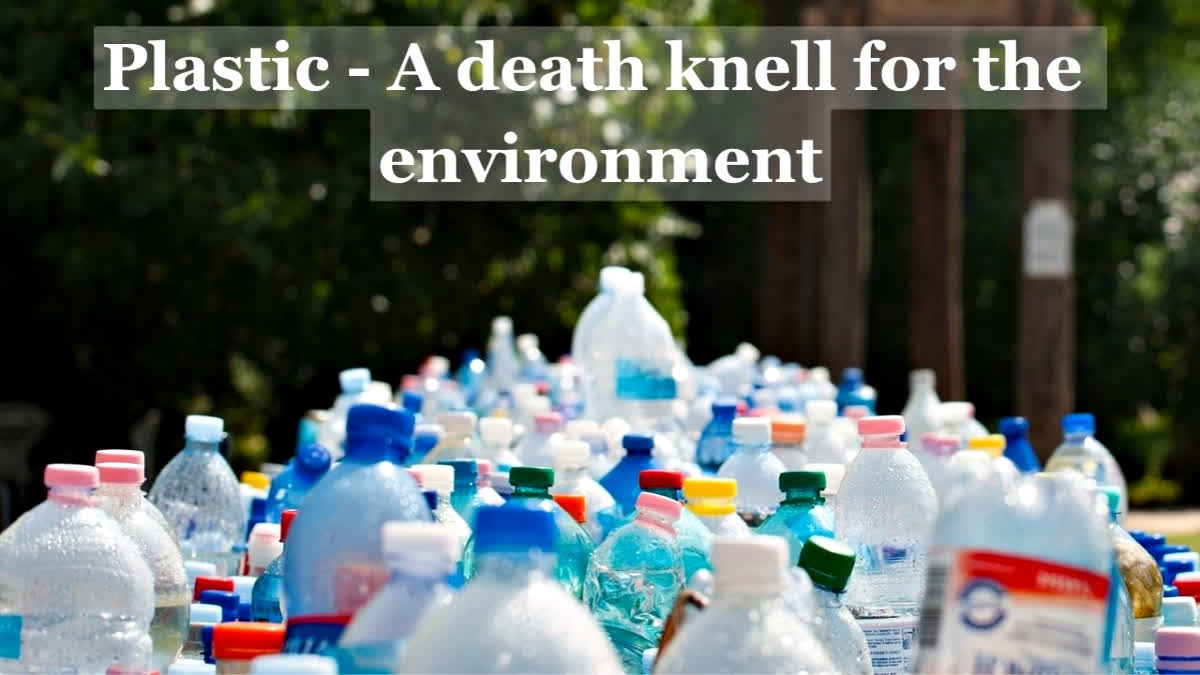Hyderabad: As the use of plastic continues to rise, so does the accumulation of resultant waste in the air, water, and land over time. Recent studies from the National Institute of Nutrition (NIN) are alarming, suggesting thatplastic entering the human body can lead to fertility problems.
Furthermore, warnings about BPA, a chemical used in plastic manufacturing, affecting the quality of sperm in future male offspring when it enters the bodies of pregnant women underscore the severity of this crisis. Today,plastic products and their associated side effects have become ubiquitous.
The revelation by a central minister that every cow and buffalo in our country contains at least 30 kg of plastic in their stomachs serves as a stark example of the proliferation of deadly waste. Microplastics and nanoplastics are accumulating in aquatic life on a large scale, causing health problems for those who consume them.
The presence of microplastics in the lungs, liver, spleen, and kidneys of coastal residents is deeply concerning to medical experts, with warnings of an increased cancer risk. Past research has already sounded the alarm on how plastic waste, whether in the air or groundwater, infiltrates the human body, damaging cells and DNA.
Scientists in the Netherlands have confirmed that microplastics have entered human blood vessels, while a recent Chinese study confirmed their presence in the heart. The National Institute of Nutrition’s latest research finding, indicating that plastic waste can hinder embryonic growth, highlights the urgent need for remedial action.
The plastic we encounter today originated from Leo Baekland's chemical experiments nearly a century ago. It now exists in various forms, from coffee cups to computers. Analyses predict that by 2050, there will be more plastic waste than fish in our oceans, exacerbating the threat of pollution.
The saying "long live the sinner'' also applies to plastic waste, as a banana peel decomposes into the soil in about twenty days, sugarcane in two months, but plastic endures for thousands of years. However, the potential destruction posed by accumulating plastic waste is colossal. It is a significant contributor to flooding in many areas by blocking rainwater from seeping into the ground, and it is responsible for the extinction of birds, turtles, and many aquatic animals in various regions.
Domestic bans on the use of plastic products, which are detrimental to both humanity and the environment, have not been very successful except in cases like Sikkim, where active local participation is evident. In areas where alternatives are scarce and widespread public awareness campaigns have not gained traction, bans are being enforced.
As the Supreme Court warned a decade ago, "We are sitting on a plastic bomb." Escaping this looming disaster requires adopting efficient strategies that minimize waste. The Netherlands has set an example by constructing roads using plastic, and the practice is gaining ground in places like the UK.
The technology for converting plastic waste into fuel has already been developed by the Indian Petroleum Institute (IIP) in Dehradun. The success of a young engineering duo from Telangana, who have produced an impressive 6000 litres of diesel from ten tons of plastic waste, serves as an inspiring example.
Less than a third of the 34 lakh tonnes of plastic waste generated in the country each year is recycled. Governments should intensify their efforts to use available soil for road construction and fuel production. This is a noble approach to controlling the plastic monster that is sealing the environment's fate, by turning waste into sources of wealth.
Also read:90% paper drinking straws harmful, not eco-friendly than plastic: Study
